National Museum of Egyptian
The NMEC is the first of its kind in Egypt and the Arab world. It p
resents the full range of the richness and diversity of Egyptian civilization
throughout the ages, from prehistoric times to the present day by focusing on its continuity and stability as demonstrated by its tangible and intangible heritage. The museum’s exceptional collection includes the royal mummies, which are exhibited in a new interactive display using 21st century cutting-edge technology to go beneath the wrappings and reveal their secrets, in addition to shedding light on the rituals and religious beliefs surrounding mummification in ancient Egypt.
King Thutmose III
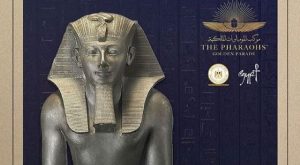
Too young to rule after the death of his father, Thutmose III began his reign as monarch in name only. His stepmother, Hatshepsut, served as his regent for several years, and then declared herself pharaoh.
For the next two decades, the young monarch grew into what would become his eventual role as one of the warrior pharaohs of the New Kingdom. After her death, he launched a series of military campaigns that solidified Egypt’s position as one of the region’s superpowers. His battle at Megiddo is considered a model of military strategy.
Discovered in the Deir el-Bahari Cache (TT 320), west of Luxor in 1881, the Mummy of the king will be transferred with the royal mummies in The Pharaohs’ Golden Parade from the Egyptian Museum in Tahrir to the National Museum of the Egyptian Civilization on April 3, 2021.
The wait for The Royal parade is finally over
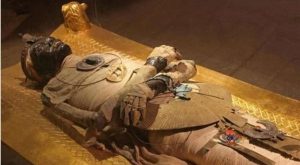
The date is set for The Pharaohs’ Golden Parade, where 22 mummies will gracefully roam the streets of Cairo from the Egyptian Museum in Tahrir to the National Museum of Egyptian Civilization. Don’t miss this unrivalled, once in a lifetime event. Stay tuned for The Pharoahs’ Golden Parade on the 3rd of April 2021!
Queen Hatshepsut
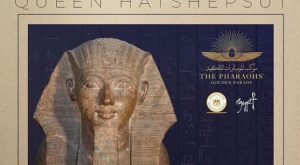
Her mummy was discovered in 1903 in tomb number KV 60 in the Valley of the Kings in Luxor.
Don’t miss the journey of the 22 royal mummies in the Pharaohs’ Golden Parade on April 3, 2021.
The mummy of Queen Merit Amun
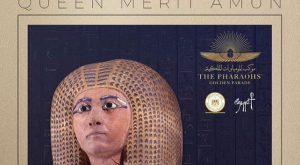
The mummy of Queen Merit Amun, daughter of King Ahmose and Queen Ahmose-Nefertari was discovered in 1930 in tomb number (TT 358) in Deir el-Bahari, west of Luxor, and is among the royal mummies transferred in a grand parade that the world is waiting for.
Don’t miss the journey of the 22 royal mummies in the Pharaohs’ Golden Parade on April 3, 2021.
Nejim Ankh coffin
Nejim Ankh coffin made of Cartonage covered with gold foil recovered from the Metropolitan Museum from the Ptolemaic period
Medium: Cartonnage covered with gold foil
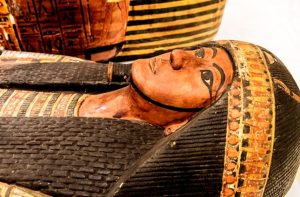
Senndjem Sarcophagus from his tomb in Deir al-Madina
Bracelets of King Ramesses II
Gold and lapis lazuli bracelets of King Ramesses II
Dynasty 18, reign of King Ramesses II, ca. 1279–1213 BC
Medium: Gold and lapis lazuli
Belt of Prince Ptah-Shepses
Belt of Prince Ptah-Shepses made of gold, red carnelian
and volcanic glass
Date: Old Kingdom, dynasty 6, ca. 2323-2150
Medium :Gold
Provenance : Saqqara
The mummies hall
Golden jewelry
Wooden model of carpentry workshop





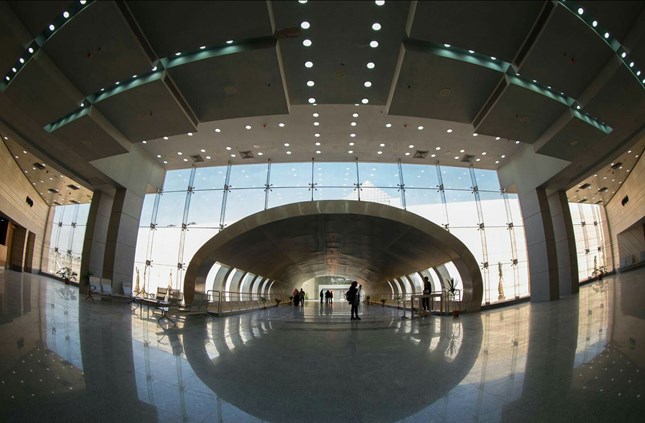
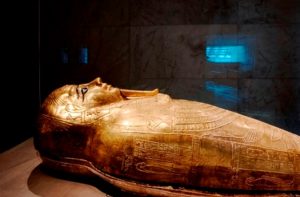
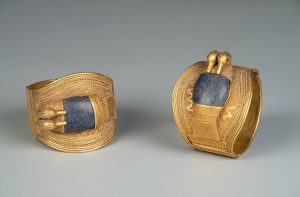
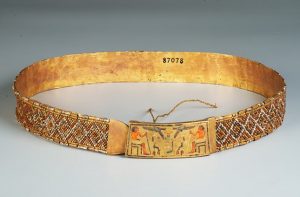
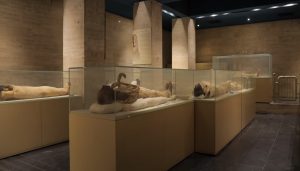
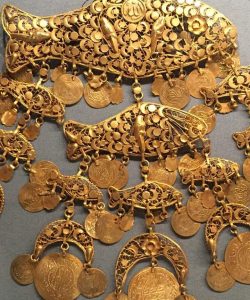
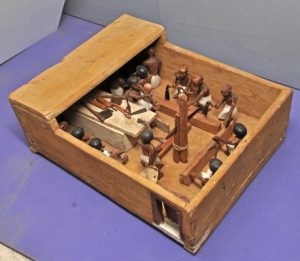
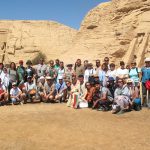

Bruce
Having been to Cairo before, this was the first opportunity to visit the new National Museum of Egyptian Antiquities. We were impressed with the way the exhibits were presented.
November 25, 2024 at 2:19 pm